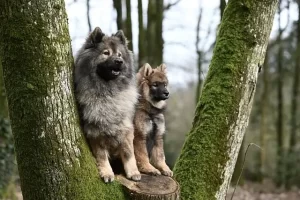As our beloved canine companions age, their needs and requirements evolve, demanding a thoughtful approach to care tailored to their advancing years. Much like humans, dogs undergo physiological changes as they grow older, and understanding these transformations is fundamental to ensuring their continued well-being and happiness. In this era of advanced veterinary medicine and heightened awareness of animal welfare, there exists a wealth of knowledge and resources available to dog owners seeking to provide the best possible care for their aging companions.
The bond between humans and dogs is unique and enduring, transcending mere ownership to encompass a deep and profound connection built on mutual trust, companionship, and love. As such, the responsibility to care for our aging canine friends extends beyond mere obligation to a heartfelt commitment to preserving their quality of life and honoring the unwavering loyalty they have shown us throughout the years.
The aging process brings with it a host of changes, both physical and emotional, that can impact a dog’s health and vitality. From decreased mobility and sensory impairments to age-related diseases and cognitive decline, there are numerous challenges that elderly dogs may face as they navigate their golden years. However, with proper care, attention, and support, it is entirely possible to mitigate these challenges and ensure that our furry companions enjoy a fulfilling and comfortable life well into old age.
In this comprehensive guide, we will delve into the essential aspects of caring for elderly dogs, offering practical advice, expert insights, and evidence-based recommendations to help you navigate the journey of aging with your canine companion. From nutrition and exercise to health monitoring and emotional well-being, we will explore the key components of senior dog care, empowering you to make informed decisions and provide the best possible life for your aging friend.
Join us as we embark on a journey of discovery, compassion, and devotion to the well-being of our cherished canine companions. Together, let us ensure that every elderly dog receives the love, care, and respect they so richly deserve as they enter this new chapter of life.
1. Importance of Elderly Dog Care
As dogs age, their healthcare needs change. It’s essential to understand the changes that occur in your dog’s body as they age and adjust their care accordingly. This includes regular visits to the veterinarian, comprehensive health exams, and special attention to signs of age-related health problems.
Elderly dogs are more likely to develop a range of health conditions, such as arthritis, diabetes, heart problems, and cancer. Identifying and treating these issues early can help ensure a better quality of life for your dog as they age. Additionally, preventive care such as vaccinations and parasite control remains important to maintain your dog’s health in their golden years.
By understanding the specific health needs of elderly dogs and taking proactive measures to address them, you can help your dog enjoy a longer, happier, and healthier life.
2. Proper Nutrition
Proper nutrition plays a key role in the health and well-being of elderly dogs. As dogs age, their nutritional needs may change, requiring a diet tailored to their specific requirements. Opting for foods formulated for older dogs, rich in essential nutrients and supplements, can help maintain your dog’s health and vitality as they age.
Additionally, it’s important to monitor your elderly dog’s weight and adjust their diet as needed to prevent obesity, which can increase the risk of a range of health problems, including arthritis and heart disease. If you have questions about the ideal diet for your elderly dog, consult your veterinarian for personalized guidance.
3. Exercise and Activity
While elderly dogs may not be as agile as they were when they were younger, exercise is still crucial for maintaining their physical and mental health. Adapting your dog’s exercise routine to include low-impact activities such as short walks and gentle play can help maintain their mobility and flexibility while promoting an active and alert mind.
The amount and type of exercise your dog needs may vary depending on various factors, including breed, size, and overall health condition. Always consult your veterinarian before starting a new exercise program with your elderly dog to ensure it’s safe and suitable for their individual needs.
4. Health Monitoring
Regular health monitoring of your dog is essential for detecting and treating any health problems that may arise early on. Be vigilant for signs of pain, discomfort, or changes in your dog’s behavior and consult your veterinarian immediately if you notice anything unusual. Regular health exams and blood tests can help identify health problems before they become serious.
Additionally, it’s important to be aware of signs of age-related health problems, such as difficulty getting up, changes in food intake, and altered behavior. By identifying and treating health problems early, you can help your dog live a more comfortable and pain-free life.
5. Emotional Well-being
Don’t forget about your elderly dog’s emotional well-being. Spending quality time together, offering affection and attention, and maintaining a consistent routine can help reassure and comfort your dog as they age. Additionally, consider introducing new forms of mental stimulation, such as interactive toys and enrichment games, to keep your dog mentally engaged and stimulated.
As dogs age, it’s common for them to experience changes in behavior and personality. If your dog appears depressed, anxious, or uninterested in activities they once enjoyed, talk to your veterinarian about ways to support their emotional well-being and ensure they feel loved and comfortable in their golden years.
Conclusion
By taking a proactive approach to the healthcare of your elderly dog, you can ensure they enjoy a fulfilling and satisfying life in their golden years. From proper nutrition and exercise to regular health monitoring and emotional well-being, there are many ways to help your dog age gracefully and comfortably. Remember to regularly consult your veterinarian to ensure your dog is receiving the care they need to enjoy a long and healthy life.
Frequently Asked Questions (FAQ)
1. What age is considered elderly for a dog? Answer: While the definition of “elderly” can vary depending on factors such as breed and size, dogs are generally considered elderly when they reach around 7 to 10 years of age, with larger breeds tending to have shorter lifespans than smaller breeds.
2. How can I adapt my elderly dog’s diet? Answer: Adapting your elderly dog’s diet may involve transitioning to a senior-specific formula that addresses their changing nutritional needs, such as lower calorie content to prevent weight gain and increased joint support for mobility.
3. What type of exercise is suitable for elderly dogs? Answer: Low-impact exercises such as short walks, gentle swimming, and slow-paced play are ideal for elderly dogs. Avoid high-impact activities that may strain their joints or cause discomfort.
4. How often should I take my elderly dog to the veterinarian? Answer: Regular veterinary check-ups are essential for elderly dogs. Typically, biannual visits are recommended to monitor their health and address any emerging issues promptly.
5. What are some signs of health problems in elderly dogs? Answer: Signs of health problems in elderly dogs may include changes in appetite, weight loss or gain, lethargy, difficulty breathing, lameness, vomiting, diarrhea, and changes in behavior or personality.
6. How can I help my elderly dog deal with pain? Answer: Consult with your veterinarian for appropriate pain management strategies, which may include medications, supplements, physical therapy, acupuncture, or lifestyle adjustments.
7. What role does the home environment play in the well-being of an elderly dog? Answer: Creating a comfortable and accessible home environment for your elderly dog is crucial. Provide soft bedding, non-slip surfaces, easy access to food and water, and minimize obstacles to prevent accidents or injuries.
8. Do elderly dogs need supplements? Answer: Depending on their individual needs, elderly dogs may benefit from supplements such as glucosamine for joint health, omega-3 fatty acids for skin and coat health, and antioxidants for overall well-being. Consult with your veterinarian before introducing any supplements.
9. How can I help my elderly dog cope with vision or hearing loss? Answer: Make environmental adjustments to accommodate your dog’s sensory impairments, such as using verbal cues or tactile signals for communication, providing extra support during walks, and ensuring a safe and familiar home environment.
10. Are there special exercise programs for elderly dogs? Answer: Some veterinary clinics or pet care facilities offer tailored exercise programs for elderly dogs, focusing on gentle activities to improve mobility, strength, and balance. Check with your veterinarian for recommendations.
11. How can I ensure my elderly dog gets the right amount of rest? Answer: Provide a quiet and comfortable sleeping area for your elderly dog, and allow them to rest as needed throughout the day. Avoid overexertion and ensure they have a consistent sleep schedule.
12. How do I know if my elderly dog is depressed? Answer: Signs of depression in elderly dogs may include lethargy, loss of interest in activities, changes in appetite, withdrawal, and excessive sleeping. If you suspect your dog is depressed, consult with your veterinarian for guidance.
13. Are there specific toys for elderly dogs? Answer: Yes, there are toys designed specifically for elderly dogs, such as puzzle toys, interactive feeders, and soft plush toys that are gentle on their teeth and joints. Look for toys that cater to their age and abilities.
14. What kind of behavior changes should I watch for in an elderly dog? Answer: Behavior changes in elderly dogs may include increased anxiety, restlessness, confusion, aggression, or changes in sleep patterns. Monitor your dog’s behavior closely and consult with your veterinarian if you notice any concerning changes.
15. How can I help my elderly dog cope with the loss of a companion animal? Answer: Provide extra love, attention, and support to your elderly dog during this difficult time. Maintain a consistent routine, offer comforting activities, and consider introducing a new companion gradually if appropriate.
16. What is the best approach to palliative care for an elderly dog? Answer: Palliative care focuses on maximizing comfort and quality of life for elderly dogs with chronic or terminal illnesses. This may involve pain management, symptom control, emotional support, and end-of-life planning tailored to your dog’s individual needs.

Juan López, a pet enthusiast since youth, shares his expertise and love for animals on his blog. With practical tips and profound insights, he guides readers toward a happier life alongside their furry companions.




